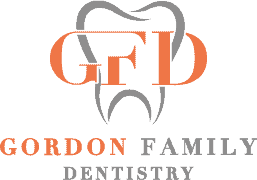Dental emergencies can occur without warning and require immediate medical attention. When a patient experiences a dental emergency, it can be difficult to determine the best course of action.
This article outlines the signs and symptoms of a dental emergency, the role of an emergency dentist, tips for managing pain and discomfort, and when to seek immediate medical attention. It also provides information on determining whether an emergency room visit is necessary.
By understanding the signs and symptoms of a dental emergency and the appropriate steps to take, patients can be better informed and better prepared for a dental emergency.
Dental emergencies can be unpredictable and highly traumatic. The consequences of not receiving the proper care can be severe and long-term. Therefore, it is essential to be familiar with the signs and symptoms of a dental emergency and to have a plan for seeking medical attention when one arises.
This article will provide an essential checklist to help individuals prepare for and respond to a dental emergency. It will provide information on the role of an emergency dentist, tips for managing pain and discomfort, and when to seek immediate medical attention. It will also include information on determining whether an emergency room visit is necessary.
By understanding the signs and symptoms of a dental emergency and the appropriate steps, individuals can be better informed and prepared for a dental emergency.
Signs and Symptoms of a Dental Emergency
Pain, swelling, and bleeding are common signs and symptoms of a dental emergency. These signs and symptoms indicate that immediate dental care is needed.
Severe pain, severe toothache, and tooth loss can also indicate a dental emergency. A patient should immediately contact a local dental clinic or emergency dentist for a prompt evaluation and treatment.
A dental emergency appointment should be made as soon as possible to ensure the best possible outcome from the dental treatment.
It is important to note that dental emergencies can happen to anyone at any time. Without prompt attention, the condition can worsen and can lead to the need for more complex treatment.
Remembering that a dental emergency can signify a much more serious underlying condition is also important. For this reason, it is important to seek emergency dental care if any signs or symptoms of a dental emergency occur.
When to Seek Immediate Medical Attention
When a person experiences a dental issue accompanied by severe swelling, it is imperative to seek immediate medical attention. The swelling may be associated with a knocked-out tooth, a broken tooth, or a fractured tooth.
In any of these cases, the person should reduce the swelling, such as rinsing the mouth with warm water or using a cold compress. Emergency treatment in a dental practice or urgent care is necessary to prevent further complications and to fix the issue as soon as possible.
The patient may need a root canal treatment or other dental services, depending on the severity. Therefore, acting quickly to get the proper emergency dental care is important.
The Role of an Emergency Dentist
An emergency dentist is important in providing urgent dental care to needy patients. This type of emergency care differs from the care a general dentist provides. It can include treating many dental issues, such as a tooth infections, baby teeth, tooth decay, tooth root, and oral health trauma.
Emergency dentistry services can also be provided for emergencies involving the mouth, such as severe jaw pain and facial swelling. This type of comprehensive emergency care is essential for maintaining patient health and safety.
Having an emergency contact number on hand in case of a dental emergency is important, as this will allow for the timely and appropriate treatment of any dental issues that arise.
Tips for Managing Pain and Discomfort
Managing dental pain and discomfort can be challenging, but several strategies can help. Depending on the severity of the pain, individuals can contact their dentist during business hours to discuss the issue. If the pain is severe, it is best to contact an after-hours emergency contact number or seek help from a hospital emergency.
Over-the-counter painkillers can be used to reduce inflammation and pain for minor cases of tooth pain. More potent painkillers may be prescribed for severe tooth pain, such as from a tooth abscess or tooth extraction. Wisdom teeth pain may also require over-the-counter or prescription painkillers.
If there is a wobbly tooth, it can be removed by a dentist. Severe bleeding can be in the form of a nosebleed or uncontrolled bleeding from the gums. In such cases, contacting a dentist or hospital as soon as possible is important.
- Contact the dentist during business hours
- Use over-the-counter painkillers
- Seek help from a hospital emergency
Determining Whether an Emergency Room Visit Is Necessary
In some cases, determining the need for an emergency room visit can be difficult. It is important to contact an emergency dental provider, such as an emergency dentist appointment, emergency dentistry, or emergency contact options, to help make this decision. Consulting an emergency dental appointment, clinic, or dental emergency care provider can help determine if an emergency exam is necessary. Leaving a message on an answering machine could be beneficial if the patient cannot contact an emergency provider directly.
Emergency department providers can also advise on whether a visit to the emergency room is necessary. Sometimes, an emergency department visit may be the only option for treating a dental emergency. It is important to understand the signs of a dental emergency, such as severe pain, swelling, or bleeding, and to contact an emergency provider as soon as possible.
Consulting a medical professional or emergency care provider can help determine if an emergency room visit is necessary. Understanding the signs of a dental emergency can help ensure that the patient receives the best care possible.
Key Takeaways
Dental emergencies can be frightening and overwhelming. It is important to recognise the signs and symptoms of a dental emergency and when to seek immediate medical attention.
An emergency dentist can provide guidance and support to help manage the pain and discomfort associated with a dental emergency. Knowing when to visit an emergency room is also essential in determining the best action.
With the knowledge and resources available, individuals can be better prepared to handle a dental emergency. Ultimately, being aware of the signs and symptoms of a dental emergency and when to seek medical attention can help ensure that the best course of action is taken.
If you or someone you know is experiencing a dental emergency. Our team of experienced emergency dentists will be able to provide guidance, support, and the best course of action to handle the situation. Don’t let your dental emergency become a bigger problem. Contact Gordon Family Dentistry today!

